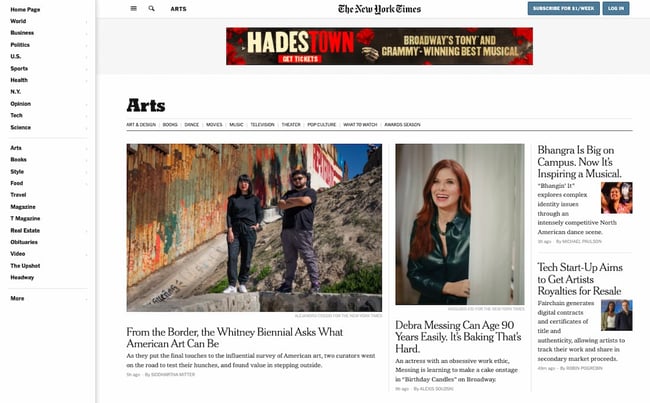9 Easy Facts About News Websites Explained
9 Easy Facts About News Websites Explained
Blog Article
The 9-Second Trick For News Websites
Table of ContentsNews Websites - TruthsAll About News WebsitesNews Websites - The FactsRumored Buzz on News WebsitesThe Single Strategy To Use For News Websites
It was down in the UK and Brazil but up some various other nations, such as Greece, Bulgaria, and Poland (News Websites). This year, for the very first time, we asked concerning the different manner ins which individuals stay clear of the news and discovered that around half of avoiders (53%) were trying to do so in a broad-brush or periodic method for instance, by turning off the radio when the news came on, or by scrolling past the information in social networkse.g. scrolling past information, changing channels when news comes on. of avoiders examine sources much less frequently. e.g. limit to particular times of day, shutting off notifications, etc. of avoiders prevent some subjects. e.g. topics that bring down state of mind or rise anxiety. You said that you attempt to actively prevent news.

I'm possibly picking to learn more light-hearted stories than I utilized to at the moment. M, 51, UK Turning my back on news is the only means I feel I can deal in some cases. I have to consciously make the effort to turn away for my own mental health.
Not known Facts About News Websites
Selective avoidance of Ukraine information was highest in many of the countries closest to the problem, strengthening findings from our additional study in 2015, not long after the battle had begun. Our information may not recommend a lack of interest in Ukraine from neighboring countries yet instead a desire to take care of time or secure mental wellness from the extremely real scaries of war.
Contrasting Finland with a politically polarised country such as the USA (see next chart) that is less affected by the battle, we find an extremely various pattern of topic evasion. In the USA, we find that customers are more most likely to avoid topics such as national politics and social justice, where discussions over concerns such as sex, sexuality, and race have come to be extremely politicised.
American national politics are quite poisonous these days. I discover sometimes that I need to separate from stories that just make me mad. F, 61, USA For some people, bitter and disruptive political arguments are a factor to turn off news completely, yet for some political partisans, avoidance is frequently concerning blocking out point of views you don't want Source to hear.

The 25-Second Trick For News Websites
Some are aiming to make information a lot more easily accessible for hard-to-reach teams, expanding the news agenda, commissioning even more motivating or positive information, or embracing positive or options journalism that give people a sense of hope or personal agency. In our study this year, we asked respondents about their interest in these various techniques.
This describes why stories like Ukraine or national politics do well with news regulars but can at the very same time transform less interested customers away (News Websites). Discerning avoiders are less thinking about all kinds of information than non-avoiders yet in loved one terms they do seem to be much more thinking about favorable or solutions-based news

The 8-Second Trick For News Websites
2023). This may hold true in click here for more info the minute, yet in time it seems to be leaving many individuals empty and less satisfied, which might be undermining our connection with and trust in the news. Across markets, total trust fund in information (40%) and rely on the resources people use themselves (46%) are down by an additionally 2 portion points this year.
Undoubtedly, with the rear-view mirror, the COVID-19 depend on bump is clearly visible in the complying with chart, though the direction of travel after that has actually been blended. In some cases (e.g. Finland), the trust fund increase has been kept, while in others the upturn looks even more like a blip in a tale of ongoing long-lasting decrease.
Several of the greatest reported degrees of media objection are found in countries with highest degree of distrust, such as Greece, the Philippines, the USA, France, and the UK. The most affordable degrees of media objection are typically in those with higher levels of count on, such as Finland, Norway, Denmark, and Japan.
Examine This Report on News Websites
This year we asked respondents concerning their preferences for text, sound and video clip when eating news online. Generally, we discover that the bulk still prefer to check out the information (57%), instead of watch (30%) or listen to check it out it (13%), however more youthful individuals (under-35s) are much more likely to pay attention (17%) than older teams.
Behind the standards we find considerable and unusual nation distinctions. In markets with a solid analysis tradition, such as Finland and the United Kingdom, around 8 in 10 still choose to read on the internet information, yet in India and Thailand, around 4 in 10 (40%) claim they like to see information online, and in the Philippines that proportion is over half (52%).
Report this page